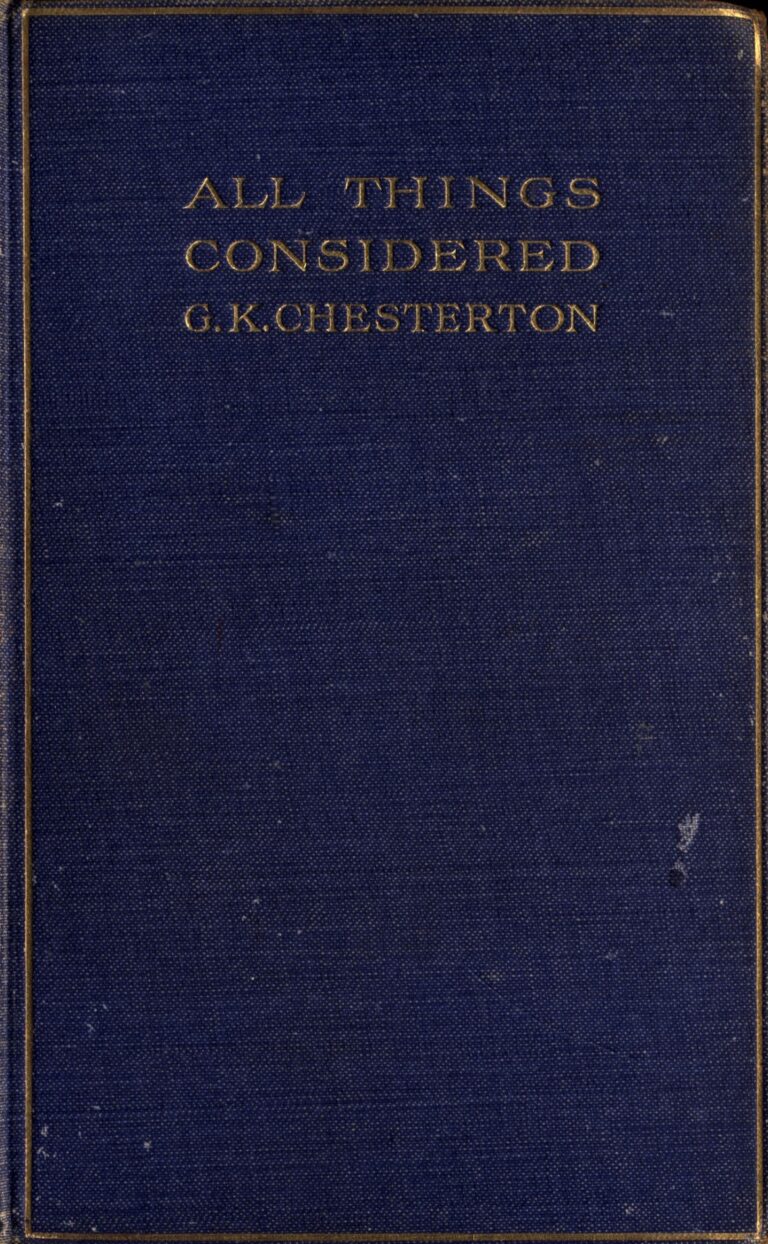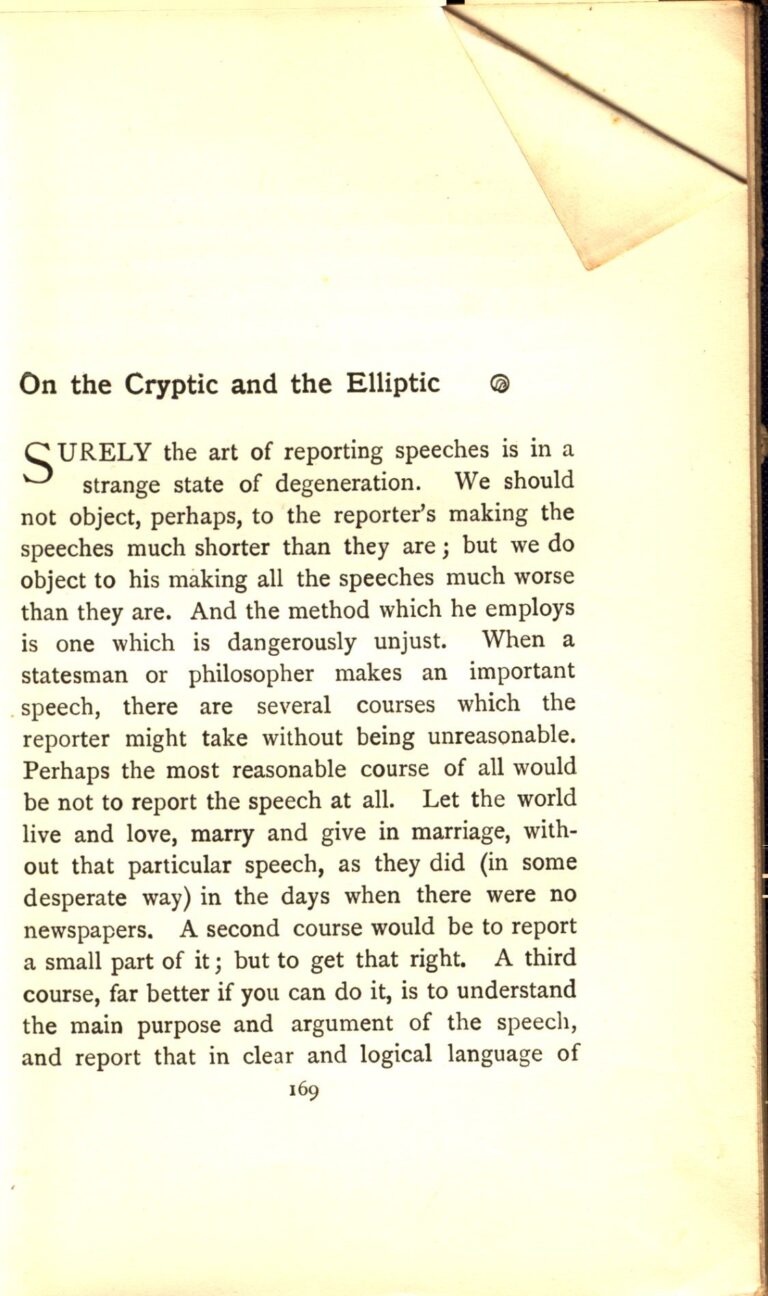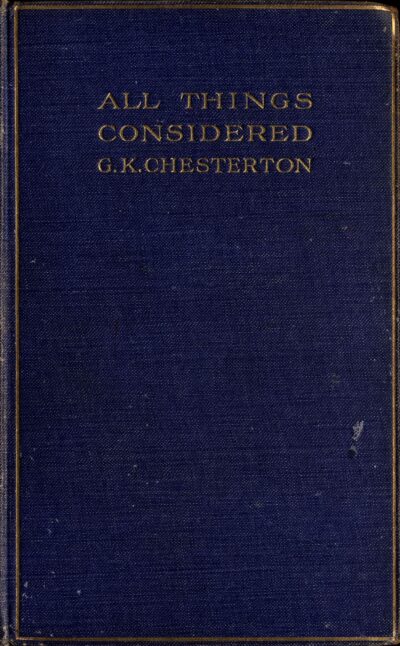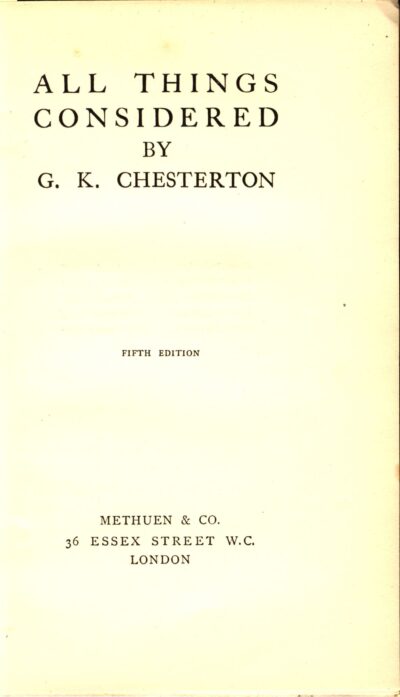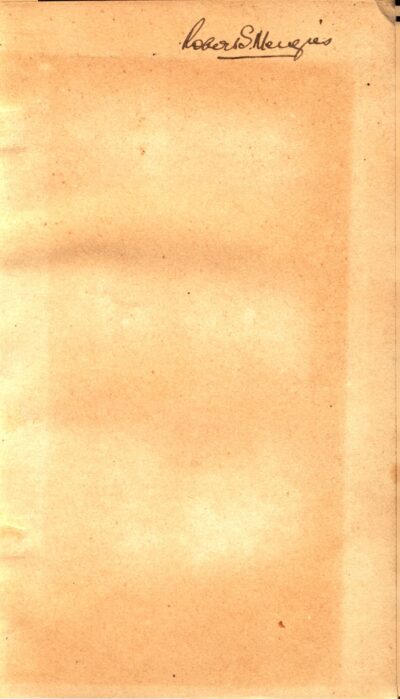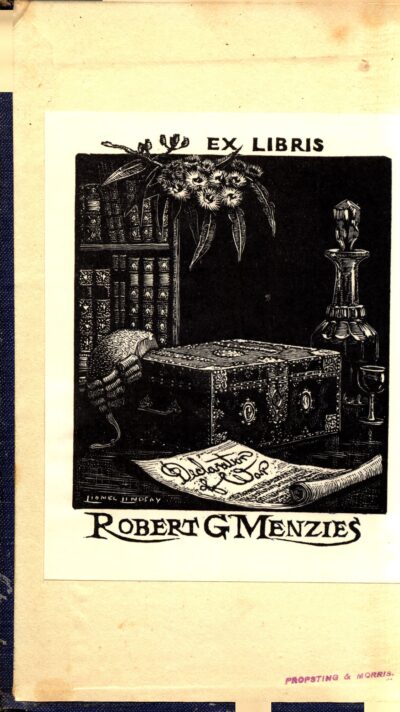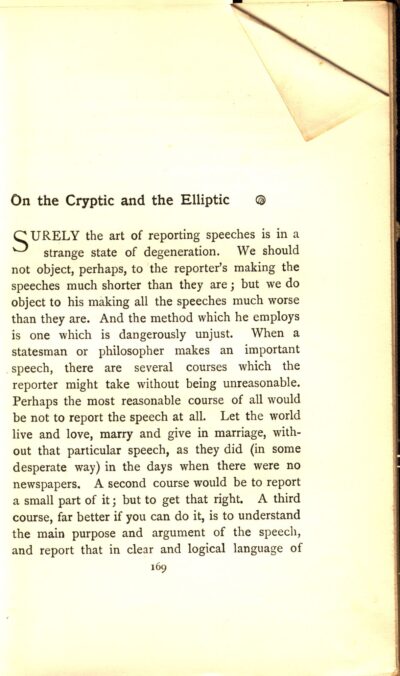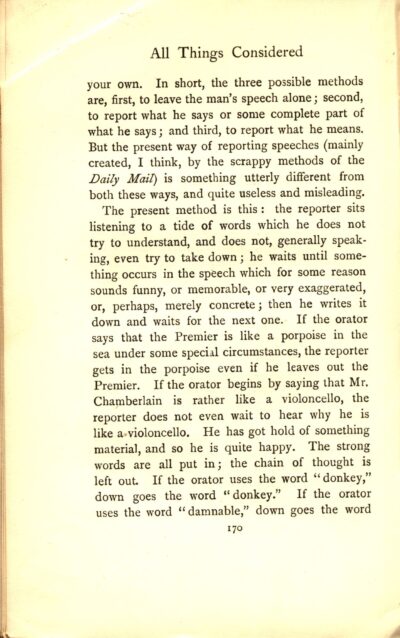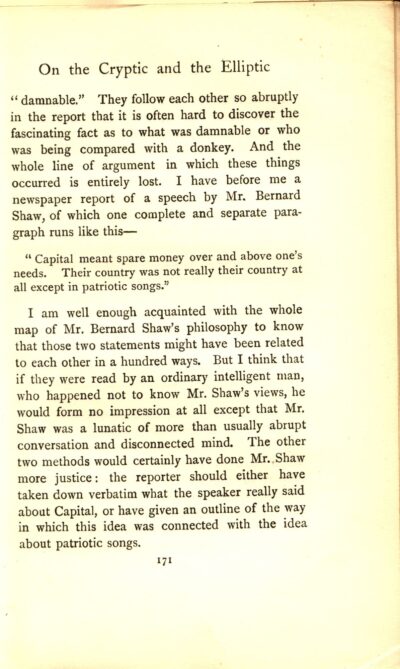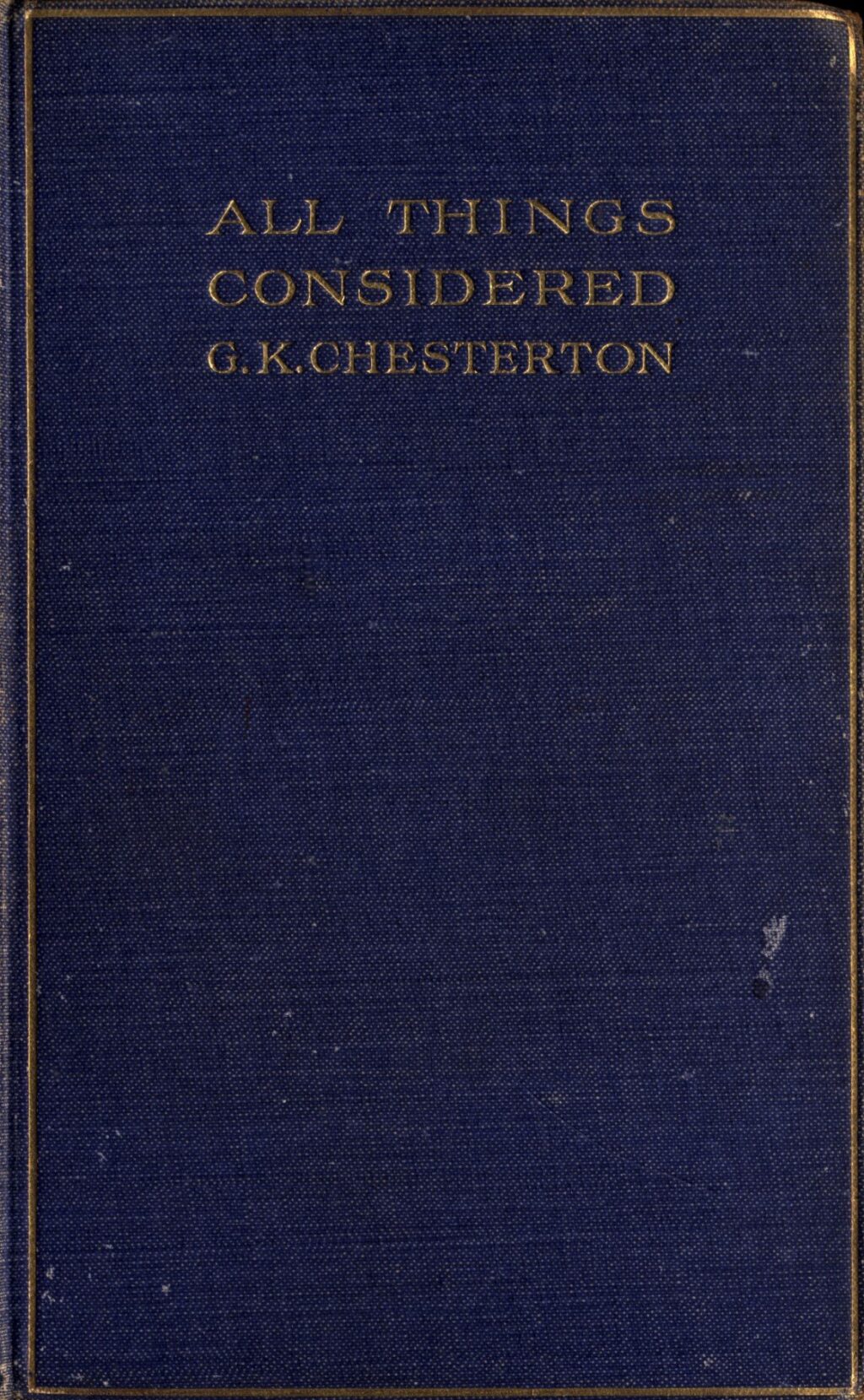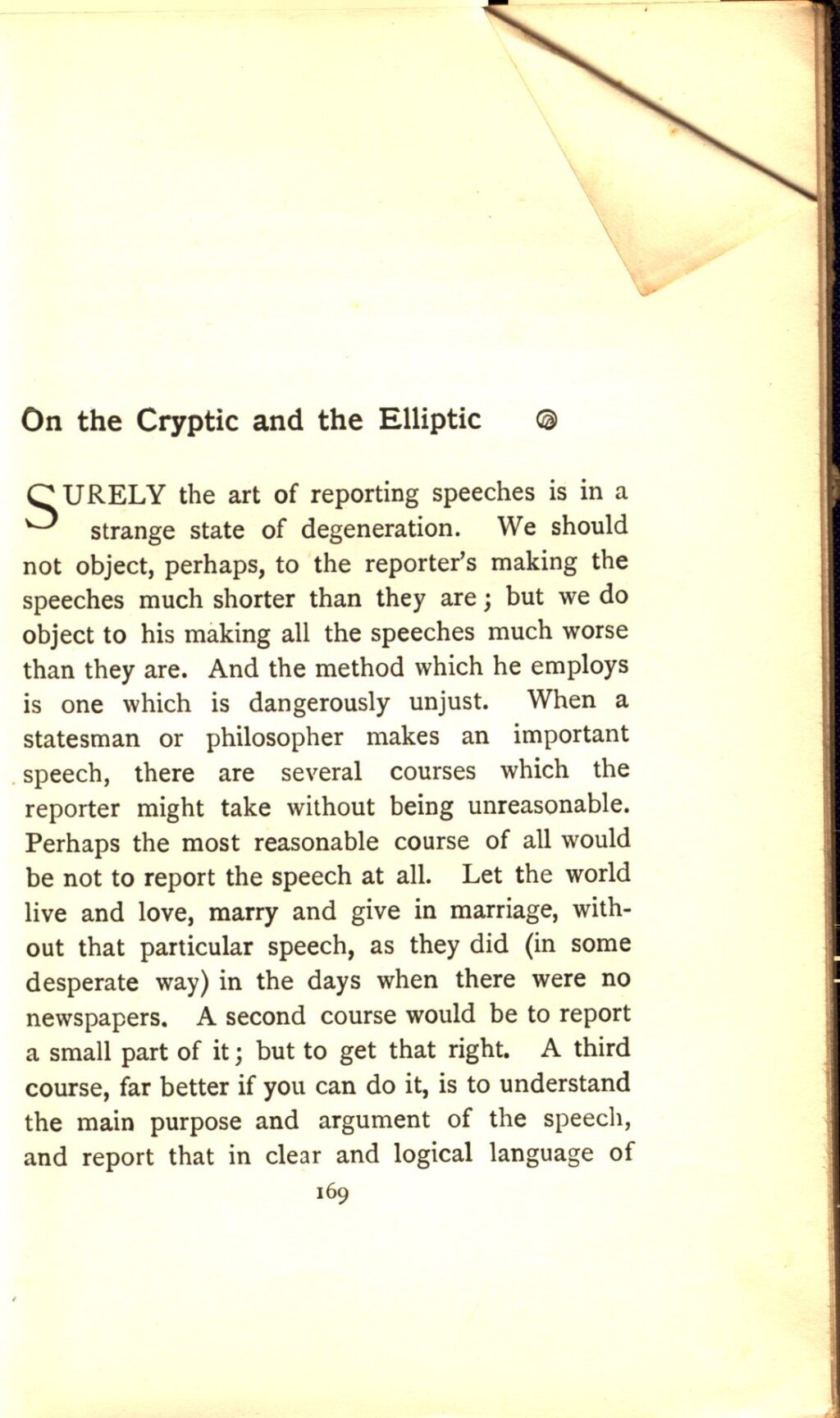G.K. Chesterton, All Things Considered (1909)
Gilbert Keith Chesterton was a prolific English author and critic, whom Menzies referred to as ‘that laughing philosopher’.
Born in London in 1874, Chesterton studied at St Pauls but never received a university degree. Instead he went to art school, and when he was asked to write a few magazine articles on art criticism in 1900, he discovered a writing ability and passion which would see him become one of the most productive authors of all time. He would go on to pen almost 100 books, hundreds of poems and short stories, and over 4000 newspaper essays. A convert to Catholicism, Chesterton mixed a Christian-conservative worldview with wit and humour that won millions of admirers around the world by the time of his death in 1936.
One such admirer was Robert Menzies, who read Chesterton since at least his university days. The Menzies Collection contains 8 Chesterton books (most kept in his bedroom for easy reading) and we have evidence from quotations that Menzies read (and likely once owned) several more. They all seem to have had intense use, and still show signs of what piqued Menzies’s interest. For example, his copy of All Things Considered has the page turned over at a passage complaining about how journalists report speeches by condensing them and thus often lose the heart of their intended message; a natural bugbear for an eloquent politician.
The most notable time in which Menzies cited Chesterton was during an address he delivered on ‘The Place of a University in a Modern Community’ as prime minister in October 1939. Printed as a stand-alone essay, this outlined Menzies’s deep and quite unique understanding of the role of universities as institutions which could promote pure learning and ensure the health of society, views which would see Menzies go on to greatly expand and revolutionise Australia’s university system during his record stint in office from 1949-66. In the address, Menzies provides an extended extract from Chesterton’s All is Grist, the sentiment of which he heartily concurred with:
‘The whole point of education is that it should give a man abstract and eternal standards, by which he can judge material and fugitive conditions. If the citizen is to be a reformer, he must start with some ideal which he does not obtain merely by gazing reverently at the unreformed institutions. And if anyone asks, as so many are asking: “What is the use of my son learning all about ancient Athens and remote China and medieval guilds and monasteries, and all sorts of dead or distant things, when he is going to be a superior scientific plumber in Pimlico?” the answer is obvious enough. “The use of it is that he may have some power of comparison, which will not only prevent him from supposing that Pimlico covers the whole planet, but also enable him, while doing full credit to the beauties and virtues of Pimlico, to point out that, here and there, as revealed by alternative experiments, even Pimlico may conceal somewhere a defect.”…
Anyhow, that is what is the matter with Business Education; that it narrows the mind; whereas the whole object of education is to broaden the mind; and especially to broaden it so as to enable it to criticize and condemn such narrowness. Everybody ought to learn first a general view of the history of man, of the nature of man, and (as I, for one, should add) of the nature of God. This may enable him to consider the rights and wrongs of slavery in a slave community, of cannibalism in a cannibal community, or of commerce in a commercial community. If he is immediately initiated into the mysteries of these institutions themselves, if he is sworn in infancy to take them as seriously as they take themselves, if he becomes a trader not only before he becomes a traveller, but even before he becomes a true citizen of his own town, he will never be able to denounce those institutions—or even to improve them. Such a state will never have the ideas or imagination to reform itself; and hustle and bustle and business activity will have resulted in the dead fixity of a fossil.’
You might also like...
Sign up to our newsletter
Sign up for our monthly newsletter to hear the latest news and receive information about upcoming events.

